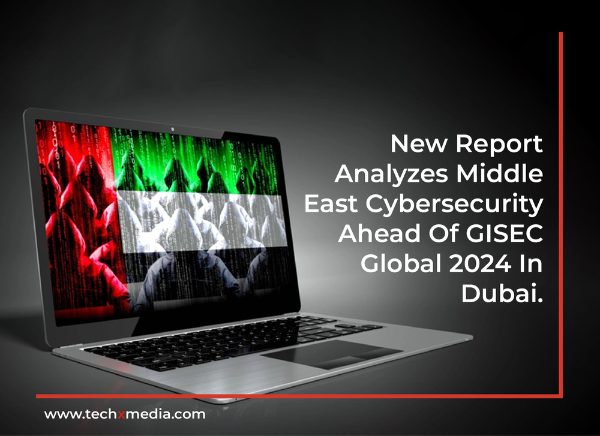
According to a recent report by Frost & Sullivan, regulatory measures continue to be the primary catalyst for the growth of cybersecurity, underscoring the importance of regulations in bolstering cybersecurity infrastructure. The report, released ahead of the GISEC Global 2024 event, provides an in-depth analysis of the prevailing conditions in the cybersecurity sector of the region.
In 2023, the United Arab Emirates (UAE) successfully fended off more than 50,000 cyberattacks daily, as reported by the UAE Cybersecurity Council. Throughout the first three quarters of the same year, the country thwarted over 71 million attempted cyberattacks. These statistics, as highlighted by Frost & Sullivan, signify the rapid expansion of the cybersecurity landscape in the region, accompanied by escalating threats.
As the cybersecurity industry in the Gulf Cooperation Council (GCC) continues to burgeon, with Frost & Sullivan projecting a tripling of its value to reach US$13.4 billion by 2030, countries like the UAE and Saudi Arabia are diversifying their economies away from oil exports, opting instead for digital solutions. However, this transition exposes businesses to heightened cyber risks, exacerbated by geopolitical uncertainties across various sectors.
The comprehensive report, titled ‘Middle East Cybersecurity: Exploring the Middle East Cybersecurity Market Potential’, was unveiled ahead of the GISEC Global 2024 event, which serves as a pivotal platform for cybersecurity networking and insights. Developed in collaboration with Frost & Sullivan, the report aims to delineate the challenges and opportunities confronting the burgeoning cybersecurity sector in the region.
The UAE and Saudi Arabia have experienced a significant surge in technology adoption across sectors such as finance, healthcare, and manufacturing, intensifying the demand for robust cybersecurity measures and regulatory frameworks. Nonetheless, challenges persist, including issues with awareness, a dearth of skilled professionals, and businesses’ ambiguity regarding proactive cyber defense strategies.
In response to these challenges, and in tandem with the global technological evolution, Middle Eastern countries are undertaking tangible measures to fortify their cybersecurity posture. Initiatives such as establishing cyber-specific departments and innovation centers, conducting educational campaigns and training programs, and fostering entrepreneurship through cybersecurity conferences are underway to address skill gaps and enhance cybersecurity resilience.
The report also underscores the commendable regulatory efforts of Saudi Arabia and the UAE, as evidenced by their high rankings in the ITU Global Cybersecurity Index 2020. These endeavors have positioned both countries as attractive hubs for academics, businesses, and innovation, with initiatives like the UAE’s Cyber Pulse Innovation Centre aiming to enhance professional skills.
Furthermore, countries like Saudi Arabia, the UAE, and Bahrain have established dedicated cybersecurity authorities to oversee ongoing industry efforts, indicating a concerted approach towards building cyber-resilient ecosystems.
Parminder Kaur, Director and Head of Security Advisory, MEASA, Frost & Sullivan, emphasized the pivotal role of compliance and regulation in driving cybersecurity growth. She noted that the proliferation of technology has heightened organizational exposure to cyber risks, necessitating stringent cybersecurity solutions to safeguard financial transactions and personal data.
As the Middle East continues to forge ahead in developing a robust cybersecurity infrastructure and economy, it emerges as a promising global hub for industry growth. Its emphasis on regulation, cybersecurity education, and supply chain security distinguishes it as a frontrunner in the cybersecurity domain, poised to meet evolving client needs.
The forthcoming GISEC Global 2024 exhibition, organized by DWTC and hosted by UAE Cyber Security Council, exemplifies the region’s commitment to collaboration, innovation, and talent development in cybersecurity. Industry players like Cloudflare and Spire Solutions anticipate leveraging the event as a platform for networking, engaging with stakeholders, and showcasing cutting-edge cybersecurity solutions tailored to the region’s evolving landscape.